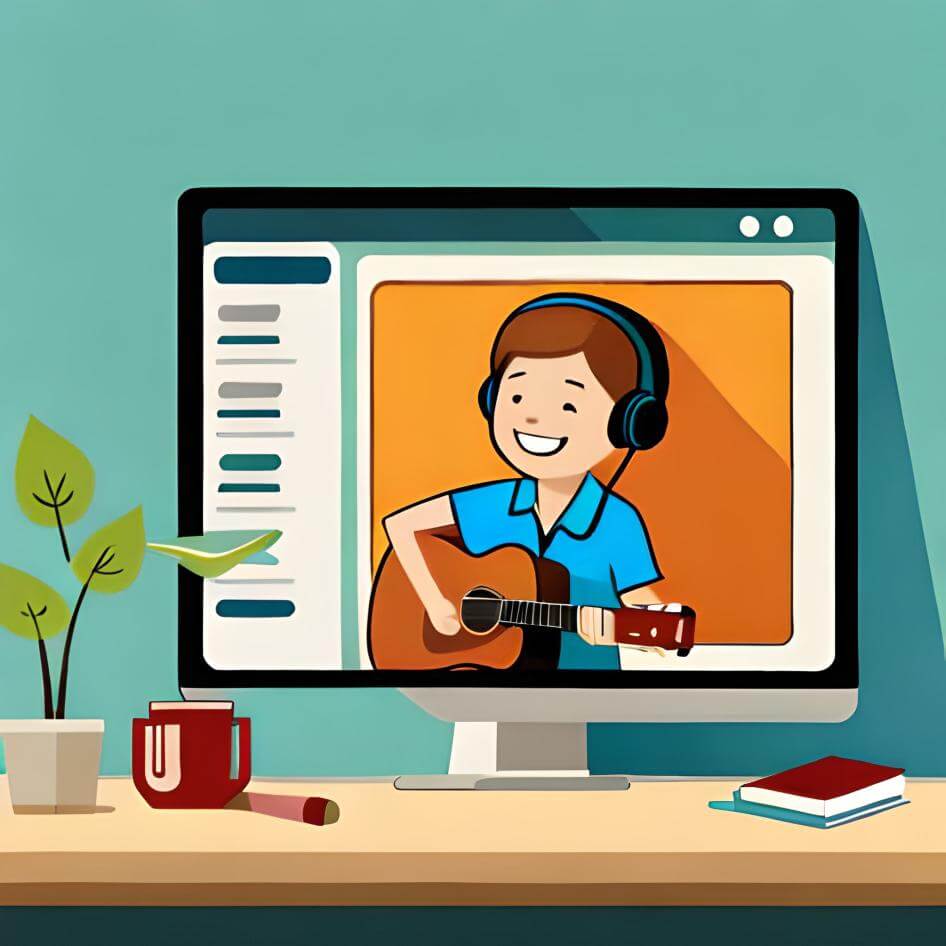 Music education is more than just learning to play an instrument or sing. It’s also a powerful tool for promoting social and emotional development in children. Research has shown that music lessons can help children develop a wide range of social skills, from teamwork and communication to problem-solving and self-expression. In fact, we created a timeline of studies showing the many benefits of music lessons. In this article, we will focus on how music lessons can help children develop better social skills and how they contribute to their overall social development. We will also discuss the specific social benefits of music education, the social skills promoted by music and movement, and how music can enhance school readiness and socioemotional skills. Lastly, we’ll share and cite several studies supporting the claim that music lessons help develop social skills.
Music education is more than just learning to play an instrument or sing. It’s also a powerful tool for promoting social and emotional development in children. Research has shown that music lessons can help children develop a wide range of social skills, from teamwork and communication to problem-solving and self-expression. In fact, we created a timeline of studies showing the many benefits of music lessons. In this article, we will focus on how music lessons can help children develop better social skills and how they contribute to their overall social development. We will also discuss the specific social benefits of music education, the social skills promoted by music and movement, and how music can enhance school readiness and socioemotional skills. Lastly, we’ll share and cite several studies supporting the claim that music lessons help develop social skills.How do Music Lessons Help with Social Skills?
 Children learn important social skills when learning to play an instrument. The benefits are magnified if children continue learning music in a band, orchestra, symphony, or choir. The group or ensemble setting helps them develop social skills because they learn to listen to one another and adjust their playing to fit in with the group. The following is a list of social skills that students develop when they learn to play a musical instrument.
Children learn important social skills when learning to play an instrument. The benefits are magnified if children continue learning music in a band, orchestra, symphony, or choir. The group or ensemble setting helps them develop social skills because they learn to listen to one another and adjust their playing to fit in with the group. The following is a list of social skills that students develop when they learn to play a musical instrument.-
Collaboration: Music lessons often involve working with others, such as in a band or ensemble, which can help children learn how to collaborate and work together effectively.
-
Communication: Learning to play an instrument requires clear communication between the student and the teacher and within a group setting, which can help children develop strong communication skills.
-
Leadership: Children who take music lessons may have the opportunity to lead a band or ensemble, which can help them develop leadership skills.
-
Self-expression: Playing music allows children to express themselves creatively, which can help them develop a sense of self-expression and self-confidence.
-
Empathy: Playing music with others requires understanding and responding to the needs and feelings of others, which can help children develop empathy.
-
Listening: Music lessons require active listening, which can help children develop their listening skills.
-
Patience: Learning to play an instrument can be challenging and requires patience and persistence, which can help children develop patience and persistence in other areas of their lives.
-
Respect: Music lessons often involve learning to play with others, which requires respecting others’ ideas and contributions, which can help children develop respect for others.
-
Cultural awareness: Learning about different types of music and the cultures they come from can help children develop an appreciation for and understanding of different cultures, which can be an essential social skill.

Do you want to get more students and grow your music teaching business?
MusicTeacherNotes is music teacher software that helps music teachers get more students and manage all aspects of their music teaching business! Every teacher who registers for a free account gets a Music Teacher Directory listing, even if they never upgrade. There is no risk in joining.
Register a Free Teacher Account!
Free Music Teacher Directory listing when you register.
What are examples of studies showing the relationship between music education and better social skills?
These are some examples of studies that have investigated the relationship between music education and social skills development in children.
-
A study published in the International Journal of Music Education in 2018 found that participation in music education can improve social skills in children, including teamwork, cooperation, and communication. The study surveyed over 300 students who were involved in music education and found that they had better social skills than their peers who were not involved in music education. (Reference: “The Relationship between Music Education and Social Skills in Children: A Survey Study,” International Journal of Music Education, 2018)
-
A study published in the Journal of Research in Music Education in 2013 found that music education can help children develop social skills such as cooperation, empathy, and self-esteem. The study surveyed over 300 students and found that those who were involved in music education had higher levels of social skills than their peers who were not involved in music education. (Reference: “The Relationship of Music Participation to Social Skills in Children and Adolescents,” Journal of Research in Music Education, 2013)
-
A study published in the Journal of Music Therapy in 2008 found that music therapy can improve social skills in children with autism. The study found that children who participated in music therapy had significant improvements in social skills, including communication and social interaction, compared to children who did not receive music therapy. (Reference: “Music Therapy for Children with Autism Spectrum Disorders,” Journal of Music Therapy, 2008)
-
A study published in the Journal of Educational Psychology in 2002 found that participation in music education can improve social skills in children, including teamwork, cooperation, and communication. The study surveyed over 500 students who were involved in music education and found that they had better social skills than their peers who were not involved in music education. (Reference: “The Effects of Music Education on Social Skills,” Journal of Educational Psychology, 2002)
Music education has a wide range of social benefits that extend beyond just learning to play an instrument. It can help to improve self-esteem, confidence, and teamwork skills, as well as foster creativity, cultural understanding, and empathy. Overall, music education has the potential to impact individuals and communities in a variety of ways and is an essential aspect of a well-rounded education.

 Do you want to get more students and grow your music teaching business?
Do you want to get more students and grow your music teaching business?